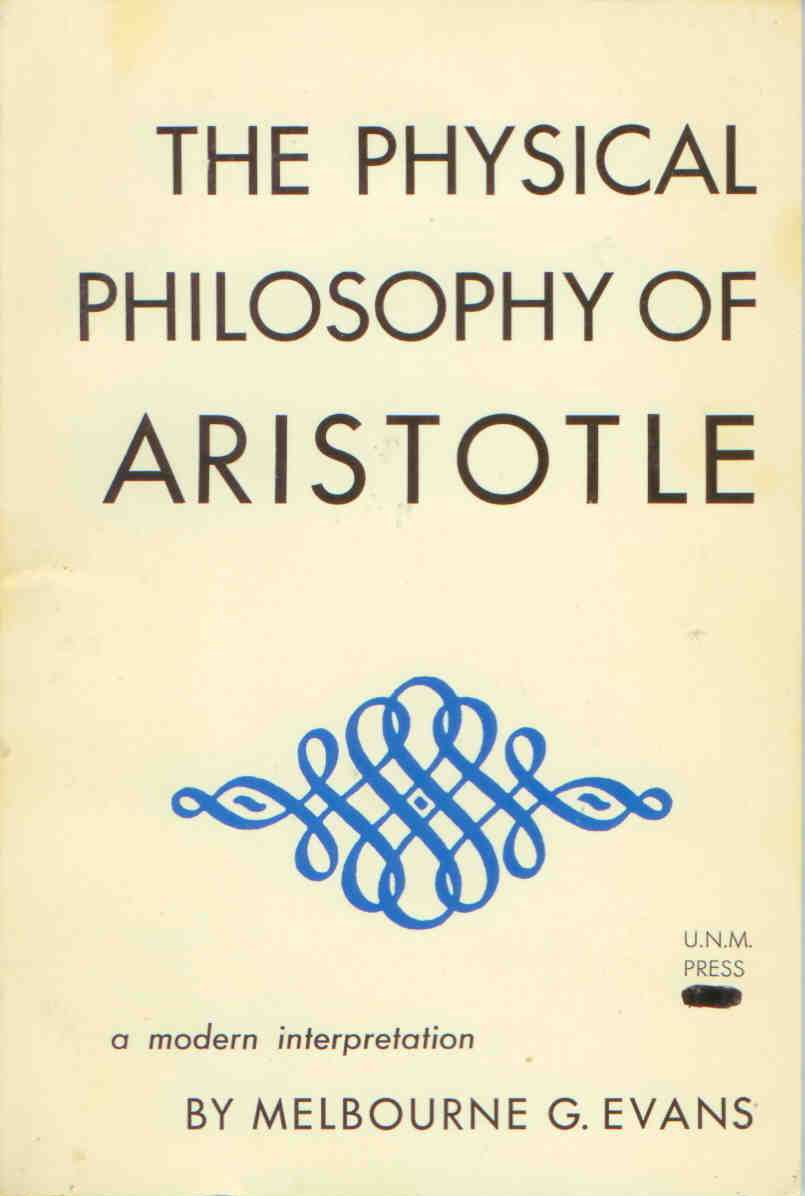"While many of Aristotle's ideas seem quaint in the light of recent discoveries, it is astonishing how modern many of them remains and how they persist and are recapitulated in today's thinking. Aristotle held a nonNewtonian concept of motion, based on weight, lightness, and natural place, but he was among the first to divine the close relationship of motion to the time concept, an idea integral in the Lorenz Transformation and Einstein's Theory of Relativity. He conceived of the universe as a finite, globular, geocentric plenum, but the eclipse of the moon held no mysteries for him and from it he deduced the sphericity of the earth long before Galileo. Change, the bases of mathematics, and his mechanical principles are treated fully in this book. In a final chapter, "The Nature of Physical Explanation," Aristotlian logic as it relates to physics is subtly probed, Distinguished by its clarity, this book is recommended to the serious student and to the scienctist pursuing the philosophical background for his field on inquiry." - From the back cover
"The purpose of Melbourne G. Evans' book is '... to set forth, in brief compass, the essential elements of Aristotle's physical (and mathematical) thought .... It is hoped that this study will provide, for students of science and philosophy, and indeed for anyone interested in the history of ideas, a guide and key to the structure of Aristotle's physical philosophy' (pp. 5-6). This purpose is carried out in brief discussions of 'The Order of Nature,' 'The Principles of Change,' 'The Concepts of Mathematics,' 'Concepts of Space, Time, and Motion,' 'The Principles of Mechanics,' and 'The Nature of Physical Explanation.' The strength of Evans' book rests on his discussion of Aristotle's treatment of problems relevant to modern mechanics and physical philosophy in the Newtonian sense. Evans is generous in pointing to notions where Aristotle is in accord with modern theory and rightfully indicates Aristotle's errors. Questions arise, however, as to whether this sort of treatment is 'a guide and a key to the structure of Aristotle's physical philosophy.' Is 'physical philosophy' for Aristotle primarily concerned with the preoccupations of modern physical science or is it something more broad[?]..." - Harold D. Hantz, Journal of the History of Philosophy, V6, N4, pp. 393-394 (Oct 1968).



